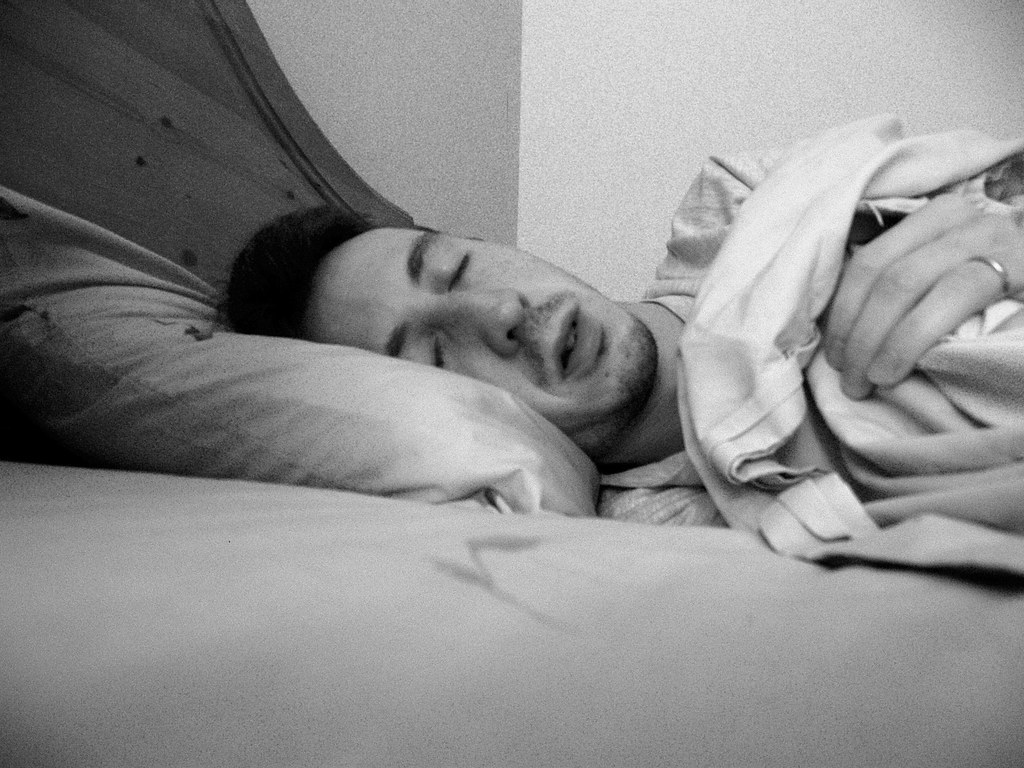Sleep deprivation is a prevalent issue affecting millions of individuals worldwide, manifesting in various forms and impacting both physical and mental well-being. The consequences of insufficient sleep are not merely limited to feeling tired or groggy throughout the day; they can extend much further, negatively influencing our overall health. In this article, we will delve into the hazards posed by sleep deprivation, shedding light on the mechanisms behind these effects and exploring preventative measures to safeguard our bodies from its harmful repercussions. Understanding the importance of a good night’s rest is paramount in our quest for optimal health and functionality in today’s modern world.

The Importance of Sleep: Exploring the Detrimental Effects of Sleep Deprivation on the Body
Sleep is an essential part of our daily routine that often gets overlooked in our busy lives. However, the detrimental effects of sleep deprivation on the body cannot be ignored. Lack of adequate sleep not only affects our physical well-being but also has a significant impact on our mental and emotional health.
One of the most noticeable effects of sleep deprivation is the impairment of cognitive function. When we don’t get enough sleep, our ability to concentrate, retain information, and make decisions is compromised. This can lead to decreased productivity at work or school and increase the risk of accidents and errors. Additionally, sleep deprivation can negatively affect our mood and emotional stability. Studies have shown that people who don’t get enough sleep are more likely to experience irritability, mood swings, and feelings of sadness or depression.
- Impaired immune system: Sleep deprivation weakens the immune system, making us more susceptible to illnesses and infections.
- Weight gain: Lack of sleep can disrupt the hormones responsible for appetite control, leading to overeating and weight gain.
- Increased risk of chronic diseases: Sleep deprivation has been linked to a higher risk of developing conditions such as diabetes, heart disease, and hypertension.
It is clear that prioritizing sleep is crucial for maintaining a healthy mind and body. Establishing a regular sleep schedule, creating a relaxing sleep environment, and practicing good sleep hygiene can all contribute to getting the recommended 7-9 hours of sleep each night. Remember, a good night’s sleep is not a luxury, but a necessity for optimal health and well-being!
Understanding the Physical Consequences: How Sleep Deprivation Impacts Overall Health and Well-being
When it comes to overall health and well-being, sleep is an integral factor that should never be underestimated. Unfortunately, in today’s fast-paced world, sleep deprivation has become a prevalent issue that affects millions of individuals worldwide. It is crucial to comprehend the physical consequences that stem from sleep deprivation in order to prioritize our sleep routines and make informed decisions to improve our well-being.
Here are some ways sleep deprivation can impact our overall health:
- Impaired cognitive function: A lack of sleep can negatively affect various cognitive abilities, including attention, concentration, problem-solving skills, and decision-making abilities.
- Increased risk of chronic conditions: Sleep deprivation has been linked to an increased risk of developing chronic conditions such as obesity, diabetes, cardiovascular diseases, and even certain types of cancer.
- Compromised immune system: Sleep plays a vital role in maintaining a robust immune system. Ongoing sleep deprivation weakens our immune response, making us more susceptible to infections, common colds, and other illnesses.
- Mood disturbances: Lack of sleep can significantly impact our emotional well-being, leading to increased irritability, mood swings, anxiety, and even depression.
- Heightened stress levels: Sleep deprivation can make us more vulnerable to stress. It can disrupt the balance of stress hormones, resulting in an overactive stress response and an increased likelihood of experiencing chronic stress.
Understanding these physical consequences of sleep deprivation underscores the importance of developing healthy sleep habits and ensuring we prioritize adequate sleep. By doing so, we can actively safeguard our overall health, well-being, and quality of life.
Combatting Sleep Deprivation: Practical Strategies to Promote Healthy Sleep Habits and Prevent Negative Effects
Establish a Consistent Sleep Schedule: Maintaining a regular sleep schedule can greatly improve your sleep quality and combat sleep deprivation. Try to go to bed and wake up at the same time every day, even on weekends. This helps regulate your body’s internal clock and ensures that you get the recommended hours of sleep.
Create a Relaxing Bedtime Routine: Develop a calming routine before bed to signal to your body that it’s time to wind down. This can involve activities such as taking a warm bath, practicing relaxation techniques like deep breathing or mindfulness, or reading a book. Avoid stimulating activities like watching TV or using electronic devices, as the blue light emitted from screens can suppress the hormone melatonin, making it harder to fall asleep.
- Avoid caffeine and nicotine in the evening, as they can disrupt sleep patterns.
- Ensure your sleep environment is comfortable, quiet, and cool.
- Avoid consuming large meals or drinking excessive fluids close to bedtime to prevent discomfort and nighttime awakenings.
- Engage in regular physical exercise, but try to complete it at least three hours before bedtime, as exercising too close to bedtime can make it harder to fall asleep.
Incorporating these practical strategies into your daily routine can help combat sleep deprivation and promote healthy sleep habits. Remember, it may take time for your body to adjust to new sleep patterns, so be patient and consistent in implementing these changes. Prioritizing quality sleep is essential for overall well-being and can prevent the negative effects that come with sleep deprivation.
Prioritizing Sleep: Expert Recommendations for Optimal Sleep Duration and Quality
When it comes to achieving optimal health and well-being, sleep is often overlooked. However, experts agree that getting enough sleep and ensuring its quality is essential for overall physical, mental, and emotional wellness. Here are some expert recommendations to help you prioritize sleep:
- Establish a consistent sleep schedule: Going to bed and waking up at the same time every day, even on weekends, helps regulate your body’s internal clock and promotes better sleep quality.
- Aim for the recommended sleep duration: The National Sleep Foundation suggests that adults aged 18-64 should aim for 7-9 hours of sleep each night, while those over 65 may benefit from 7-8 hours. Adjusting your sleep duration according to individual needs can be beneficial.
- Create a sleep-friendly environment: Ensure your sleep space is cool, quiet, and dark. Use blackout curtains, earplugs, or white noise machines to minimize external disruptions and promote a more restful sleep.
- Avoid electronic devices before bed: The blue light emitted by screens can interfere with your sleep/wake cycle. Disconnect from electronic devices at least an hour before bedtime to promote better sleep quality.
Other strategies for improving sleep
- Maintain a relaxing bedtime routine: Engage in activities such as reading, listening to calming music, or taking a warm bath to signal your body that it’s time to unwind and prepare for sleep.
- Limit caffeine and stimulant intake: Avoid consuming caffeinated beverages or foods close to bedtime as they can interfere with your ability to fall asleep and stay asleep.
- Exercise regularly: Engaging in moderate-intensity exercise during the day can improve sleep duration and quality. However, avoid vigorous exercise close to bedtime, as it may leave you feeling too energized to fall asleep.
By incorporating these expert recommendations into your daily routine, you can prioritize sleep and reap the numerous benefits it has to offer. Remember, a restful night’s sleep is key to leading a healthier and more fulfilling life.
The Way Forward
In conclusion, the hazards of sleep deprivation are detrimental to both our physical and mental health. As we have explored throughout this article, the effects of inadequate sleep go far beyond feeling groggy or fatigued. From impairing cognitive functions and weakening the immune system to increasing the risk of chronic diseases such as diabetes and heart conditions, sleep deprivation poses a serious threat to our overall well-being.
Fortunately, there are effective measures we can take to prevent the adverse effects of sleep deprivation on our bodies. By adopting healthy sleep habits, such as maintaining a consistent sleep schedule, creating a relaxing bedtime routine, and optimizing our sleep environment, we can improve the quality and duration of our sleep. Additionally, it is crucial to prioritize sleep as an essential aspect of our daily lives and make it a non-negotiable part of our self-care routine.
Acknowledging the hazards of sleep deprivation and taking proactive steps can significantly contribute to our physical and mental vitality. By prioritizing restful nights, we allow our bodies to heal, regenerate, and perform optimally during the day. Ultimately, it is within our power to protect ourselves against the hazards of sleep deprivation, paving the way for a healthier, more productive, and fulfilling life. Sleep well, stay well!
When a person doesn’t get enough sleep, they are said to be sleep deprived. Sleep deprivation, which occurs when a person gets less sleep than required for optimal alertness during the day, can have a variety of different negative effects on the body, including an increased risk for obesity, diabetes, heart disease, stroke, and mental illness. In order to reduce these risks, it is important for individuals to take steps to prevent sleep deprivation and get adequate amounts of sleep on a regular basis.
Sleep deprivation can be caused by a variety of factors, including work and social obligations, poor sleep hygiene, medical conditions, stress, and neglected sleep needs. A person who doesn’t get enough sleep is more likely to suffer from daytime sleepiness, fatigue, difficulty concentrating, impaired memory, decreased reaction time, and irritability. Over time, sleep deprivation can have serious consequences on physical health, including an increased risk for obesity, diabetes, heart disease, stroke, and certain types of cancer. It can also have a negative impact on mental health, leading to depression, anxiety, and other mental health disorders.
In order to prevent the effects of sleep deprivation, it is recommended that adults get seven to nine hours of sleep per night. This can be accomplished by establishing a consistent sleep schedule and sticking to it. It is also important to create an environment that is conducive to sleep by limiting exposure to bright lights and noises, avoiding naps in the late afternoon or evening, and keeping the room temperature cool. Additionally, relaxation techniques such as reading, taking a warm bath, and meditating can help a person relax before bedtime and make it easier to fall asleep.
Overall, it is important to take steps to prevent sleep deprivation and get the recommended amount of seven to nine hours of sleep each night. Sleep deprivation can have serious negative effects on physical and mental health, including increased risks for obesity, diabetes, heart disease, stroke, and mental illness. Therefore, by establishing consistent sleep habits and a restful sleep environment, individuals can help protect their overall health and well-being.







